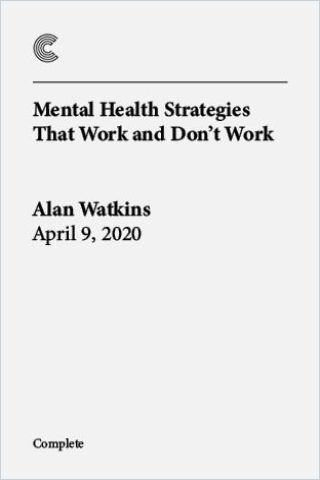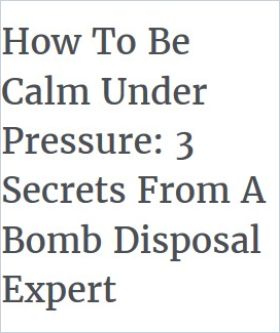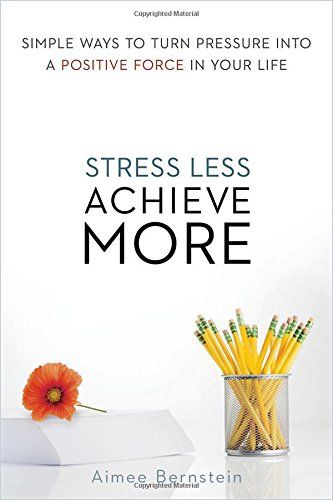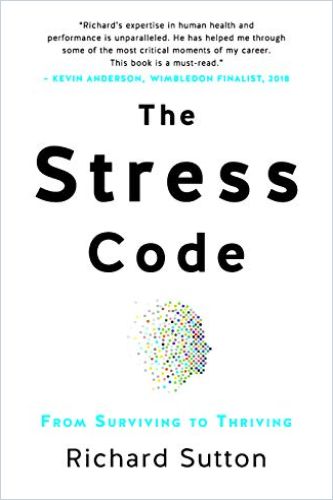How to Move Out of Stress-Paralysis

You come to the office and your boss tells you that the big project you have been working on is due today at noon, not next week as you thought.
Your heart starts pounding.
Your breathing rate accelerates.
You feel paralyzed by anxiety.
You can’t think clearly anymore.
In a situation of acute stress, advice such as, “meditate every morning,” “take a yoga class,” “get more sleep” or “eat less sugar” won’t help much when faced with an imminent deadline dangling over your head like the sword of Damocles.
Let’s face it: Your boss’s deadline reminder triggered a flight-or-fight response in you. Logical reasoning or sheer willpower won’t get you out of it.
So what do you do? These three methods will help you get unstuck:
1. Get Into Your Body
You’re in a state of mental block. Instead of pushing against it, find an elegant way to walk around it. You do that by shifting your attention to your body. Feel your feet on the ground. Splash your face with cold water. Pay attention to your body’s sensations, feelings, moods and movements. This will activate your vagus nerve, a major body-process regulator and vital component of the parasympathetic nervous system. Activating the vagus nerve can quickly restore a soothing sense of calm and balance – a prerequisite for accessing your thinking brain.
2. Breathe
“Take a deep breath.” You’ve heard this advice a million times. If you’ve tried it and it did not work, science will back you up. It’s not the amount of oxygen you breathe in but the rhythm of your breath that will get you back in sync when things spin out of control.
Neuroscientist Alan Watkins suggests you work with the acronym BREATHE, which stands for “breathe rhythmically, evenly and through the heart every day.” Inhale for four seconds, and exhale for about four seconds. You can play with the ratio. What matters is that you focus on filling your heart, not your abdomen.

3. Refocus
When you are overwhelmed by stress, you feel you are no longer in control – which in itself is stress-inducing. You can regain a sense of control by focusing on the immediate next step to take. It can be a baby step like turning on your computer. When worrying thoughts start overwhelming you again, don’t buy into them. Instead, focus your attention on what you can do next to make progress on your goal. Staying in the process of working toward a solution – instead of worrying about a worst-outcome scenario – will calm your limbic system and help you move on.









